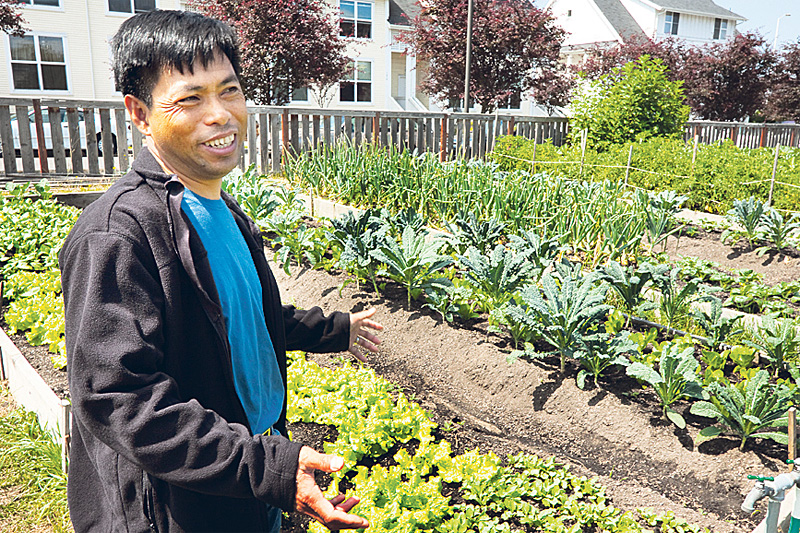The United Nations conducts business in six official languages. To do his job, Bunly Yun works with only one fewer. He’s not trying to impose international sanctions or wipe out global pandemics. He’s running organic vegetable gardens at two Seattle Housing Authority developments, helping immigrant residents grow food for themselves and earn some extra income in the process.
At NewHolly in the Rainier Valley and High Point in West Seattle, Bunly tries to recruit participants for the onsite p-patches while dealing with a sometimes-transient population. Right now about a dozen immigrants are raising vegetables for weekly CSA (Community Supported Agriculture) delivery to about 80 subscribing households. Another 20 families are participating for their own use.
Bunly learned his gardening skills in Cambodia, where he farmed oranges, mangoes, and bananas. His family settled in NewHolly 20 years ago, when it was the Holly Park housing project. To help stave off isolation, he joined the neighborhood block watch, became a member of the community council, and then worked as a liaison between Seattle Public Schools and non-English-speaking parents. Today he works with Somali, Chinese, Vietnamese, and Lao speakers, as well as communicating through his native tongue, Khmer.
Hien Nguyen, who immigrated to Seattle from Vietnam in 1994, says he’s been gardening at High Point for 11 years. He spent years laboring in prison after the North Vietnamese army caught him aiding American troops during the Vietnam War. When he was exhausted from digging ditches, a prison officer would point a gun at him and tell him to keep working, he says. Now he works voluntarily, tending overflowing beds of carrots and chrysanthemums.
Yun has to convey to gardeners the policies on composting and pesticides, teach them how to care for and harvest crops, and make sure they show up for work parties. “The main thing is to make sure the garden is clean and all plots are planted,” he says. The hope is that a feeling of community will sprout along with the corn and potato plants they grow.
“Without gardens,” says Yun, “we don’t see [people] communicate with each other.”





